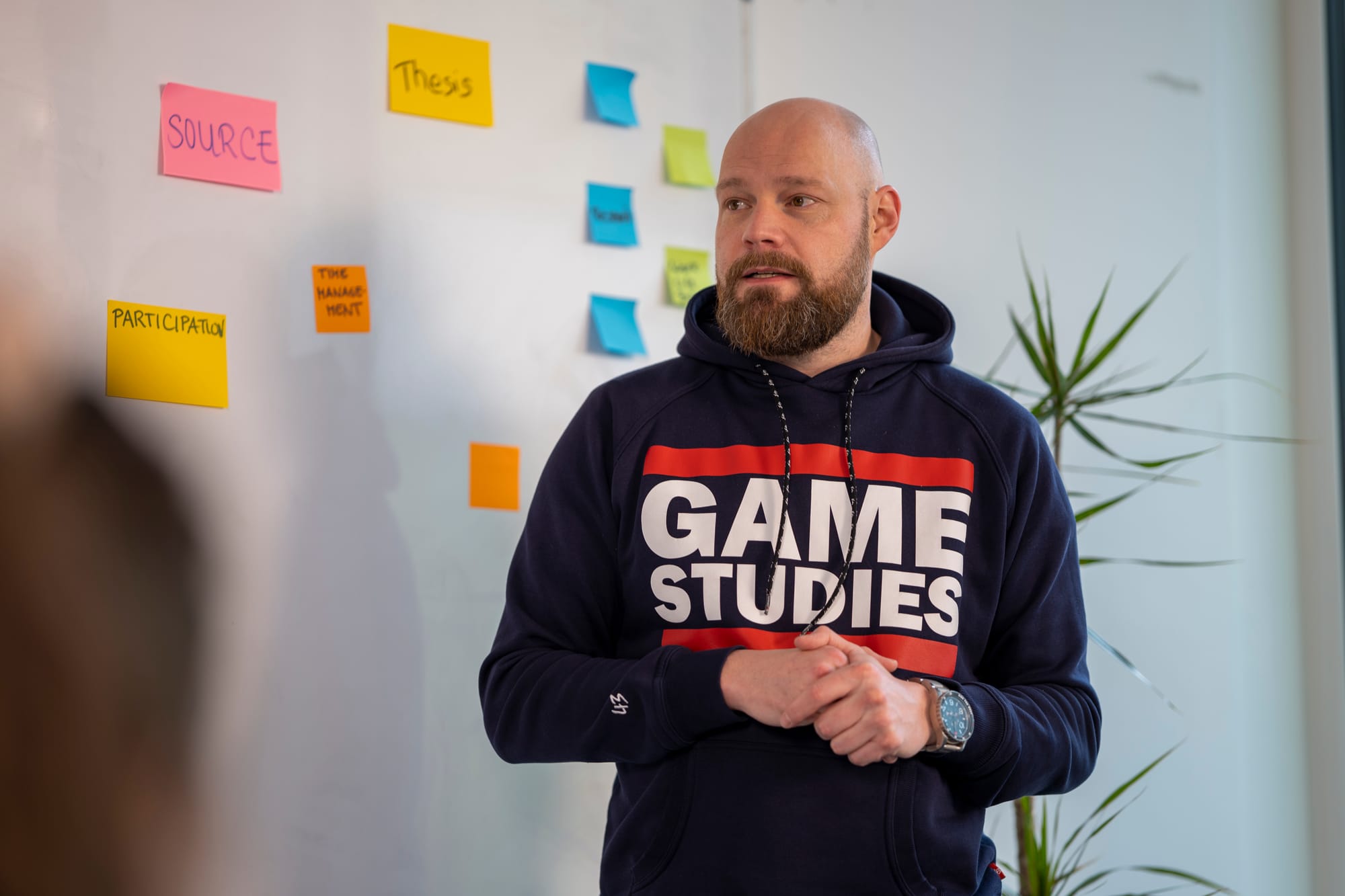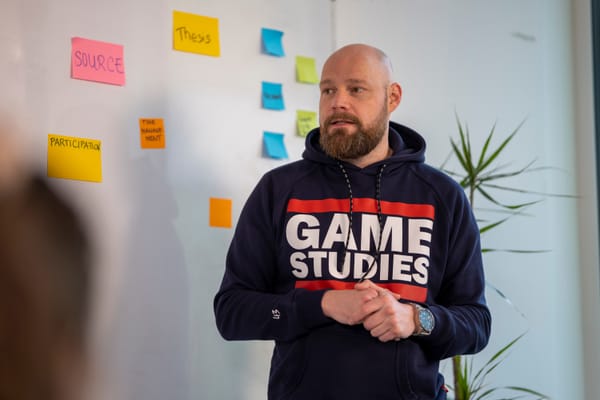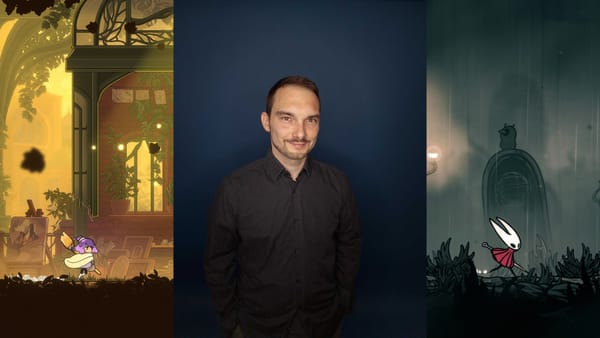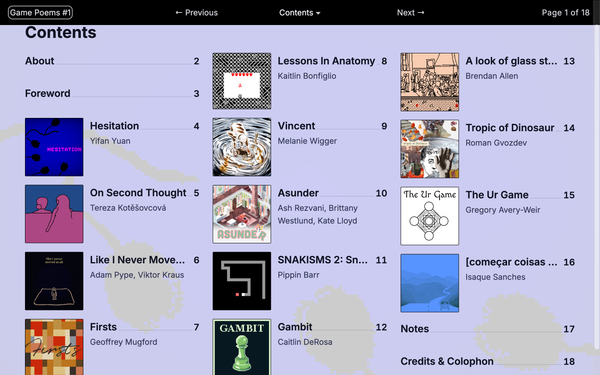Game Studies Watchlist #46
The Game Studies Watchlist newsletter, curated by Prof. Dr. Rudolf Inderst, is published weekly on GamesMarkt. This week's topic include a trip down Darkwood, a glance at Tampere and a ludomusicology conference.


The Game Studies Watchlist newsletter, curated by Prof. Dr. Rudolf Inderst, is published weekly on GamesMarkt. This week's topic include a trip down Darkwood, a glance at Tampere and a ludomusicology conference.


AHOI there, game studies operators!
Ghost Waves. He has a wonderful gift for his audience. A wonderful narrative voice is not merely a vehicle for story but a presence that seems to breathe alongside the reader. It balances clarity with personality, guiding without intruding, and revealing emotion without sentimentality. Such a voice carries a quiet confidence, attuned to rhythm, nuance, and the weight of each chosen word, while leaving space for the listener’s imagination to bloom. But it's also a fantastic topic, he is talking about in his essay.
In this video we'll be looking at why Darkwood earned a reputation for being a disturbing game and how it offered a horrifying experience without relying on the use of jump scares.
This ludo-contribution argues that a truly great horror game is one that lingers in the player’s mind long after the experience ends, and presents Darkwood as a masterclass in this kind of lasting psychological tension. It explains how the game’s opening sets the tone: moral ambiguity, disturbing imagery, and unsettling choices are introduced immediately through the guilt-ridden doctor, his dying dog, and his brutal treatment of a wounded stranger. As the player takes over the true protagonist and enters the wider world, Darkwood consistently cultivates dread through limited information, survival-focused exploration, and an oppressive atmosphere where every step into the mysterious forest feels dangerous. The nightly assaults at each hideout amplify this tension, with sound design, limited visibility, and unpredictable events creating fear without relying on jump scares.As the story progresses through Dry Meadow, Silent Forest, Old Woods, and eventually The Swamp, the game deepens its themes of moral consequence, surreal horror, and isolation. Characters like the Trader, Wolfman, Piotrek, the villagers, and the Doctor each embody different forms of desperation, delusion, or corruption, while the player’s choices have tangible and often devastating consequences on their fates. The narrative gradually reveals the forest’s disturbing secrets, including the transformative, memory-fusing “colourless liquid” that creates twisted replicas of humans and animals. By the time the player reaches the final dreamlike sequences and uncovers unsettling hints about their own origins, Darkwood has woven together moral ambiguity, cosmic horror, and psychological decay into an experience designed to haunt the player long after the game ends.From a Game Studies perspective, Darkwood is a compelling example of how mechanics, narrative structure, and sensory design can converge to produce what we might call experiential horror, a form of engagement in which fear emerges not from scripted shocks but from systemic conditions. The game demonstrates how restricted perception (the cone-of-vision system), punitive resource scarcity, and opaque cause-and-effect loops can function as ludic amplifiers of dread, encouraging players to project their own anxieties into the gaps left by the design. Its moral-choice architecture is equally notable: rather than offering binary “good/evil” paths, Darkwood forces players into ethically compromised decisions where survival, empathy, and self-interest blur, illustrating how games can simulate ethical stress in ways linear media cannot. The game’s unstable spaces, shifting hideouts, distorted replicas, and dreamlike transitions, serve as a case study in environmental storytelling that disrupts spatial mastery. Darkwood thus stands as a rich text for examining how uncertainty, constrained agency, and fragmented narrative co-produce affective intensity, demonstrating the medium’s unique capacity to sustain psychological rather than merely spectacular horror.
It's on! The 22nd Annual Tampere University Game Research Lab Spring Seminar will be held from the 5th to 6th of May, 2026! This spring seminar of Game Research Lab wants to carve a space for a discussion of events and communities that relate to games and play. And here's the call for papers: https://springseminar.org/2026-call-for-papers/
The Sega Master System was my first home console. So, when Keith Stuart (btw, I am trying so hard to earn a mentioning spot with Game Studies Watchlist in the Guardian's newsletter Pushing Buttons) decided to write about the Master System, I knew, I had to feature his article.
The history books have been cruel to it, but for those of us who were there [...], the Master System was the home arcade machine that hinted at the future of gaming.
Very wise words indeed!
Melanie Fritsch asked Bioshock-ly kind to share this info: Ludo2026, the 15th European Conference on Game Music and Sound, will take place 6 – 8 August, 2026, at Edge Hill University, hosted by Michael Austin and they welcome proposals on all aspects of sound and music in the context of games.
"Analogue has still got it and their latest absolutely slaps", says Alex Donaldson in his Eurogamer review of the Analogue 3D review; since I very much enjoy my Mega Sg, I was eager to find out, what the company behind this hardware would be able to do with the N64.
Studies in the Fantastic is an academic journal publishing refereed essays, informed by scholarly criticism and theory, on both fantastic texts and their social function. Although grounded in literary studies, it also publishes articles examining genres and media that have been underrepresented in humanistic scholarship. The latest issue, Gendered Violence and Video Games, is a great read!
and this week, let's not forget about ... Rebecca Heineman
You are welcome to share your ideas and feedback with me. If you like Game Studies Watchlist, please tell your friends, colleagues, as well as fellowship and post on social media about it! Please support my work in game research & culture, consider contributing via Buy Me a Coffee.
Cheers and stay healthy,
Rudolf








